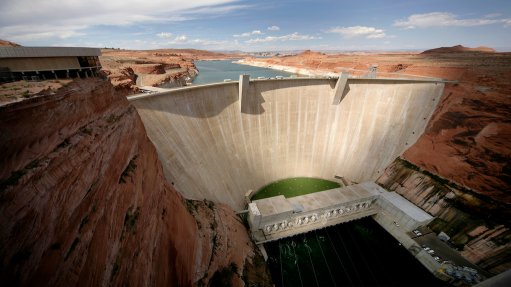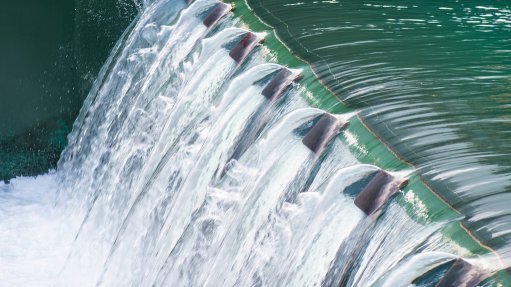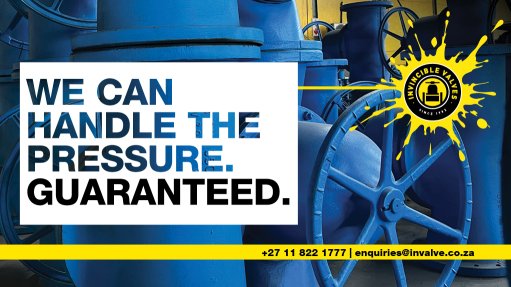Artificial intelligence creating new value-generation ways for operators of infrastructure networks


AIDAN HELMBOLD infrastructure operators are focusing on long-term horizon objectives, which depend on the health and state of the network, and what investments must be made
The use of artificial intelligence (AI) techniques in the operation of infrastructure networks and within industries is leading to new ways of generating value for companies and users, says AI solutions company ExploreAI CTO Aidan Helmbold.
He states, however, that the acme of using AI in technical industries and operations, such as infrastructure networks, lies in the collaboration of domain specialists with an understanding of the use of AI and data science specialists who can do the modelling that reveals insights.
“A lot of the big utilities and infrastructure companies have the objective to be more effective, efficient, proactive and innovative in how they operate, manage and invest in their networks. This serves as the vehicle through which digital transformation happens.
“The operators of networks are getting a lot more information about the state of the network at any given time. “A lot of the work we do is in helping them to make sense of this information in their operations processes,” says Helmbold.
A second theme in the use of AI in infrastructure is that companies are aiming to become less reactive and more proactive in the management of the networks, as well as in responding to problems and mitigating negative impacts, he emphasises.
“With this greater amount of data, they can move to more proactive control of their large-scale operating networks,” he says.
ExploreAI’s work with UK utility Thames Water is specifically aimed at improving the utility’s operations, including detecting leakage rates and preventing pollution, by using the data on the state of the network, he illustrates.
Another major theme the company is seeing among infrastructure clients is the focus on managing long-term objectives, such as achieving an operator’s energy commitments and net-zero goals in 2050.
These require significant decisions about the health and state of the network, and what investments the companies have to make. Data and AI help them to make those decisions, including by enabling them to model and then manage these changes as they go forward, and to leverage the changes in information flows as they progress, Helmbold adds.
“This is one area AI techniques can help. While digital twins typically aim to precisely replicate all aspects of the network, ExploreAI also uses a different approach that uses simplified versions of the network to ask overarching questions.
“For example, a simplified version allows our clients to ask broad questions about the impact of population trends and water demand, and they can start planning according to different possible scenarios and thereby inform and improve their decision-making processes,” he says.
Further, AI and data techniques and simulations allow for many different scenarios and variations to be modelled and analysed, he adds.
“For example, we are working with a US telecommunications firm to model the most effective way to roll out fibre, based on demand forecasts, uptake estimates and cost-effectiveness.
“These same techniques can also be used in greenfield fibre network roll-out, such as in developing countries, to model the eventual operational expenditure and thereby shape the roll-out of the fibre network, albeit in a different way to that of a developed country,” Helmbold explains.
This highlights the business use cases and value of AI and data techniques, specifically in helping to model how to optimise a network that is being developed. This information may influence the design of the network and investment decisions to ensure the most appropriate capital investments and eventual operating costs.
Additionally, when infrastructure companies use AI and data techniques as part of their operations, they are able to test their assumptions as the project progresses against the real-time data they are receiving, he highlights.
Remarkable Growth
AI techniques rest on the use of data to solve specific challenges. This has provided a significant tool for infrastructure operators to use.
“ExploreAI has grown remarkably in the past year. We had one large client a year ago and now have a portfolio of eight clients. We are seeing this growth on the back of demand, although we expect further growth stages ahead for us.
“Our work at our current clients could present a chance to generalise our systems across industries. For example, the UK water sector is heavily regulated, but is also cooperative, which presents an opportunity to collaborate across the industry,” Helmbold highlights.
There is a drive in the water and wastewater sector towards innovation and exploring new ideas.
“The tailwinds driving this are data and AI techniques based on sensor data, and we are able to make the data valuable by linking it to business drivers within a strategic context,” he notes.
However, to make use of any AI and data-related techniques, the technology side must understand the business. This means that the collaboration between skills is critical.
Engineers do not need to be experts in data science, but must be intimately involved in the processes, as this allows for more and more effective solutions to be identified and developed, he adds.
“Data scientists and software engineers must work with the business’s engineers around developing a product, system or solution. This operational vehicle can also drive a lot of innovation and change, as product development becomes a part of the company’s digital transformation mindset,” he says.
Comments
Press Office
Announcements
What's On
Subscribe to improve your user experience...
Option 1 (equivalent of R125 a month):
Receive a weekly copy of Creamer Media's Engineering News & Mining Weekly magazine
(print copy for those in South Africa and e-magazine for those outside of South Africa)
Receive daily email newsletters
Access to full search results
Access archive of magazine back copies
Access to Projects in Progress
Access to ONE Research Report of your choice in PDF format
Option 2 (equivalent of R375 a month):
All benefits from Option 1
PLUS
Access to Creamer Media's Research Channel Africa for ALL Research Reports, in PDF format, on various industrial and mining sectors
including Electricity; Water; Energy Transition; Hydrogen; Roads, Rail and Ports; Coal; Gold; Platinum; Battery Metals; etc.
Already a subscriber?
Forgotten your password?
Receive weekly copy of Creamer Media's Engineering News & Mining Weekly magazine (print copy for those in South Africa and e-magazine for those outside of South Africa)
➕
Recieve daily email newsletters
➕
Access to full search results
➕
Access archive of magazine back copies
➕
Access to Projects in Progress
➕
Access to ONE Research Report of your choice in PDF format
RESEARCH CHANNEL AFRICA
R4500 (equivalent of R375 a month)
SUBSCRIBEAll benefits from Option 1
➕
Access to Creamer Media's Research Channel Africa for ALL Research Reports on various industrial and mining sectors, in PDF format, including on:
Electricity
➕
Water
➕
Energy Transition
➕
Hydrogen
➕
Roads, Rail and Ports
➕
Coal
➕
Gold
➕
Platinum
➕
Battery Metals
➕
etc.
Receive all benefits from Option 1 or Option 2 delivered to numerous people at your company
➕
Multiple User names and Passwords for simultaneous log-ins
➕
Intranet integration access to all in your organisation


















